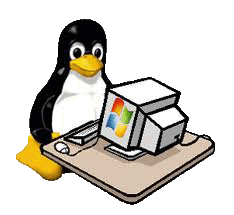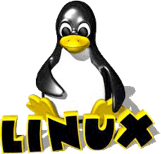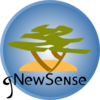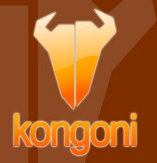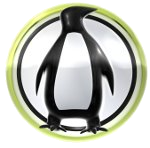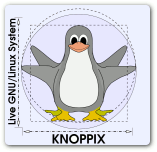

Sofftware
Recommended Software
Operative Systems
The GNU Operative System
I specially promote the GNU Operative System, which began to be developed by the GNU Project since 1985. GNU is a recursive acronym that stands for "GNU's Not Unix", because Richard M. Stallman, who founded the GNU Project, wanted to create a free operative system which would be a replacement of Unix, a proprietary operative system. A free operative system would let people copy it, modify it, change it, and redistribute it or sold in original or modified form. This is the operative system I use, but without a component of the GNU Operative System called the GNU Hurd, the kernel. I use instead a more developed and supported kernel called Linux.
[Top]
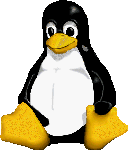
Linux is a kernel being developed by the Linux Foundation, and began to be written in 1991 by Linus Torvalds and is released under the GNU General Public License. Thanks to his kernel, the last part of the GNU system that was missing was filled. This created the GNU/Linux Operative System, which sometimes has been misnamed "Linux". Here I offer a list of the GNU/Linux distributions I recommend.

Due to the fact that the current Linux kernel now has proprietary blobs in it in order for the kernel to interact with certain hardware, those who promote a completely free Linux version for a GNU/Linux operative system have created Linux Libre, a completely free kernel available under the GNU General Public License.
[Top]
GNU/Linux Distributions
gNewSense: This is a GNU/Linux distribution that is sponsored by the Free Software Foundation, and is true to creating a free operative system, excluding any kind of proprietary software that sometimes can be found in other GNU/Linux distributions. It is based on Ubuntu and Debian GNU/Linux. Like Knoppix, it also has a live CD available for people who do not wish to install it, but want to explore it. This live CD also offers people the opportunity to install it if they wish to do so. They also provide the means so that other people can create their own GNU/Linux distributions. It uses Linux Libre as their default kernel.
Kongoni: This is a completely free GNU/Linux distribution that is approved by the Free Software Foundation, based on Slackware. The word "Kongoni" is the Shona word for "Gnu", and its purpose is to provide a completely free operative system. It includes an installer, a KISS (Kongoni Integrated Setup System) which is an easy tool for configuration tasks, and PIG (Ports Installation GUI) which is their tool for installing and managing programs. They only provide software approved by the Free Software Foundation. All of their releases are named after great philosophers: Aristotle, Sophocles, Nietzsche, and so on. Since many of the software patents used in codecs currently used in video and audio, they do provide the codecs for their GNU/Linux distribution. It only uses Linux Libre as their kernel.
VLOS: This is a distribution that is based on the Funtoo distribution of GNU/Linux. It is developed in Puerto Rico by several programmers, including the founder, Antonio Carlos Vélez Báez. Its purpose is to make GNU/Linux more accessible to homes and offices. The fact that it is based on Funtoo, a fork of Gentoo Linux makes this product very solid. I highly recommend this distribution.
Ubuntu: Ubuntu is perhaps one of the most popular GNU/Linux distributions. It is based on Debian GNU/Linux, and it is developed by a company called Canonical Limited. This is the operative system that I recommend for beginners. It is very well made, it is attractive, highly reliable, and user-friendly. I prefer the Ubuntu based distribution, Kubuntu, in my computer.
Knoppix: This is a very popular GNU/Linux distribution, based on Debian GNU/Linux, which has the peculiarity of being the operative system that is completely loaded from the CD or DVD. It needs not be installed in the hard drive. Knoppix is excellent for two things: (1) For people to experiment with GNU/Linux and explore it without having to install it in the hard drive; (2) It can be used as a very powerful tool to access hard drives, or problem-solving without loading from the hard drive. It uses LXDE as its basic desktop inteface. If people like it, it can be also installed in the hard drive as any normal operative system.
Other GNU/Linux distributions recommended by the Free Software Foundation, are committed to complete freedom from proprietary software:


Linux Special Interest Group
